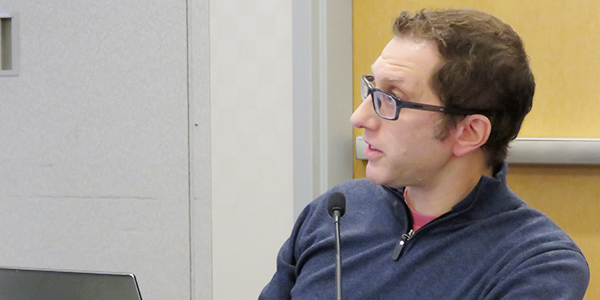By Rich Heidorn Jr.
VALLEY FORGE, Pa. — A PJM proposal to revise the rules on non-retail behind-the-meter generation met with suspicion from municipal utilities and cooperatives at Tuesday’s Operating Committee meeting.
PJM introduced a proposed problem statement, saying current rules are inconsistent with Capacity Performance (CP) requirements and the lack of reserves for this growing class of resources could present reliability problems.
Non-retail BTM generation (NRBTMG) refers to resources used by municipal electric systems, electric cooperatives or electric distribution companies to serve load. They do not participate as supply resources in PJM markets but can be netted against their wholesale load to reduce transmission, capacity, ancillary services and administrative fee charges.
PJM’s rules on such resources resulted from a 2005 settlement agreement (EL05-127), before development of the RTO’s capacity market and CP constructs. NRBTMG resources can be called upon during the first 10 Maximum Generation Emergencies annually, while CP resources are required to perform during all Performance Assessment Intervals (PAIs). BTM operators that fail to perform face reduced netting benefits.
“The right to call upon NRBTMG during an emergency was established to address a concern that if too much generation is designated as NRBTMG and allowed to net against load, system reliability would be compromised since PJM would not be carrying reserves for a large amount of load associated with NRBTMG,” PJM said.
However, non-retail BTMG is not specifically addressed in PJM’s Emergency Procedures Manual (M-13), making it unclear whether such resources would be requested to operate during any emergency.
NRBTMG resources are expected to run at full output. “‘Full output’ was considered a reasonable expectation of performance at the time of the NRBTMG business rule development, when more traditional types of NRBTMG existed,” PJM said. “With the increased development of renewable NRBTMG in the PJM region, the expected performance level of NRBTMG should be reevaluated.”
PJM identified about 400 MW of non-retail BTMG in an outreach in 2006, before East Kentucky Power Cooperative, Duke Energy and American Transmission Systems Inc. (ATSI) joined the RTO, said PJM’s Theresa Esterly. The RTO hopes to get a current tally of such resources through current efforts to update its data on all distributed energy resources.
Closing ‘Loopholes’

Jim Benchek, of FirstEnergy, said his company will support the review, provided the scope of the issue is clarified, as a way to “cover up loopholes for avoiding performance requirements.”
“Calpine has been pushing to look at this issue for a while,” said Calpine’s David “Scarp” Scarpignato. While CP resources are penalized for failing to perform, the operators of underperforming NRBTMG will “lean on the rest of the system and they’re not going to face any kind of penalty,” he said.
Scarp also said the review is timely because any rule changes could affect the business models of DERs.
A Solution in Search of a Problem?
But representatives of cooperatives and municipal utilities questioned the need for new rules. “We want to be able to continue to use them the way we’ve been using them,” said Carl Johnson of the PJM Public Power Coalition.
“You have a solution and you’re trying to find a problem,” said Steve Lieberman of American Municipal Power. “… It seems like you’re trying to make an equivalency between NRBTMG and capacity resources receiving capacity payments.”
Mike Cocco, of Old Dominion Electric Cooperative, agreed, saying ODEC would oppose extending CP rules to non-capacity resources. He said any PJM proposal affecting NRBTMG must be comparable to the netting rules for retail BTMG. Cocco suggested expanding the scope of the problem statement to include a review of existing netting rules for both NRBTMG and retail BTMG.
Scarp also suggested the inquiry be broadened to include retail BTMG, saying performance failures by such resources “could give you the same reliability issues.”
Lieberman said expanding the scope could make it impossible to complete the work in the 10-month time frame proposed by PJM. “I don’t want to face another letter from the Board [of Managers]” setting a deadline for action, he said, referring to the Board’s recent ultimatum on market formation changes. (See Section 206 Filing on PJM Reserve Pricing Likely.)
Operating Committee Chair Dave Souder asked stakeholders to propose any changes to the problem statement before the OC’s next meeting, when the RTO hopes to bring the inquiry to a vote.






